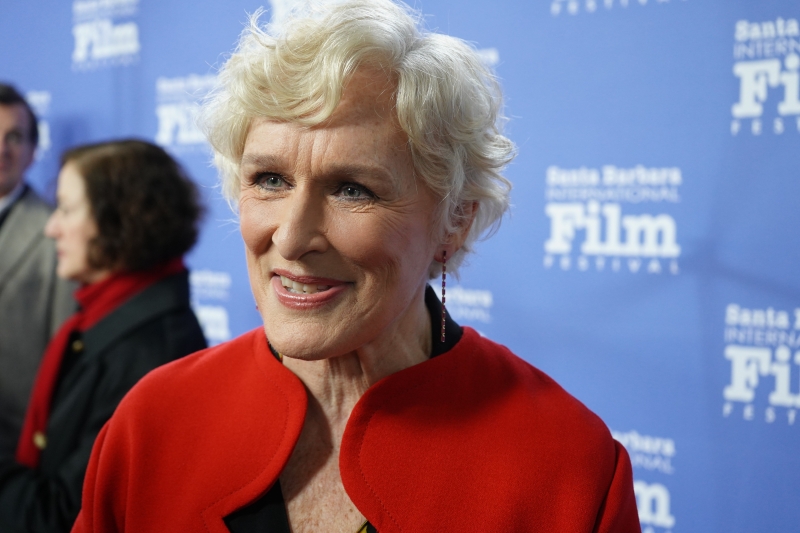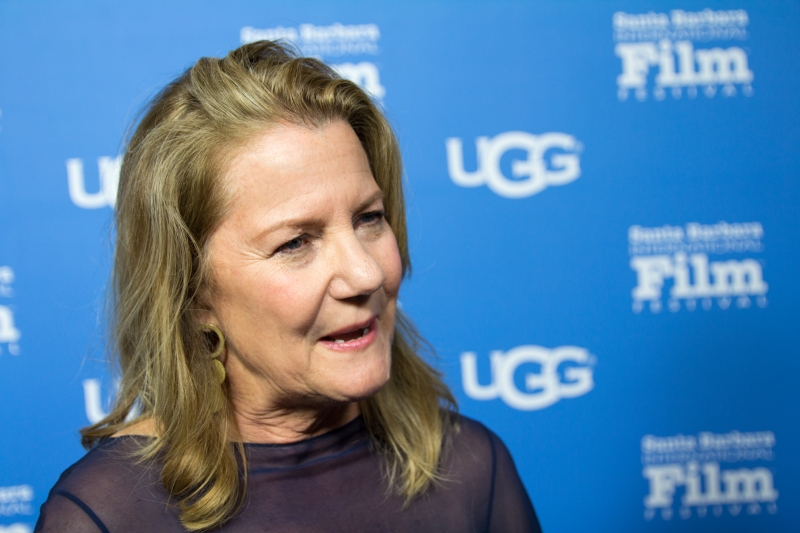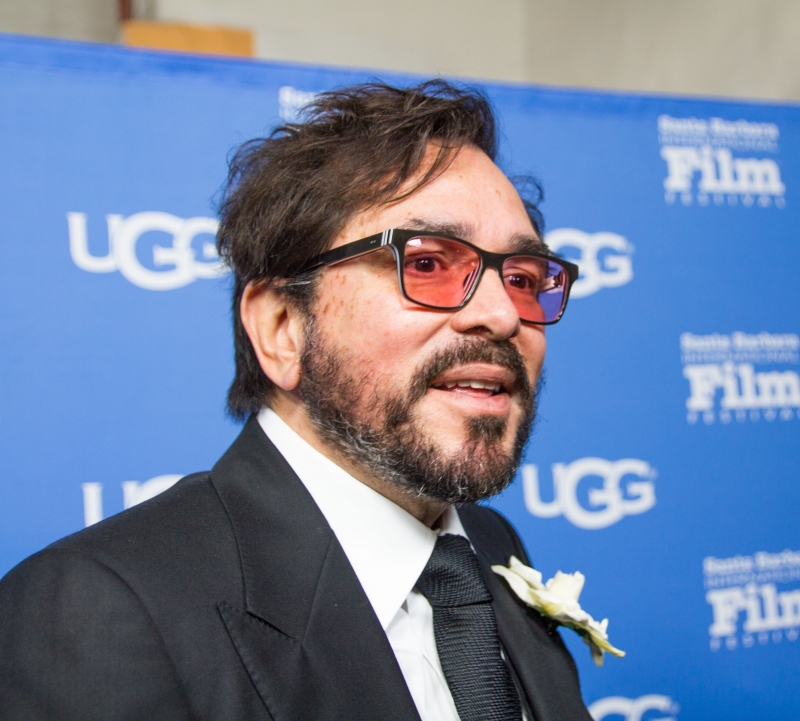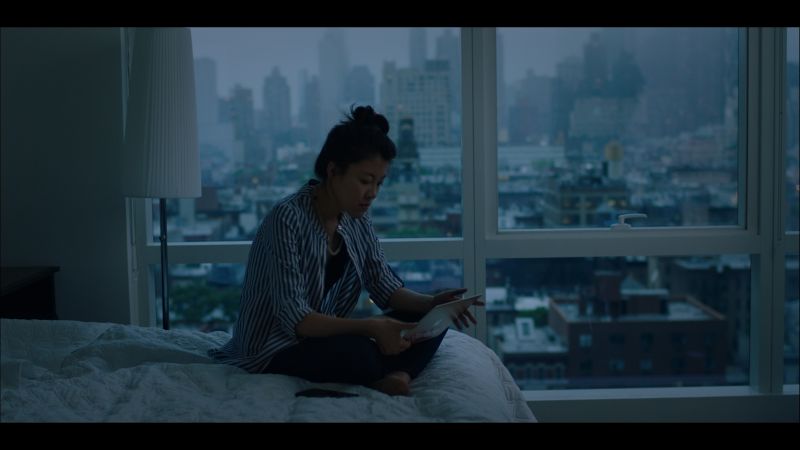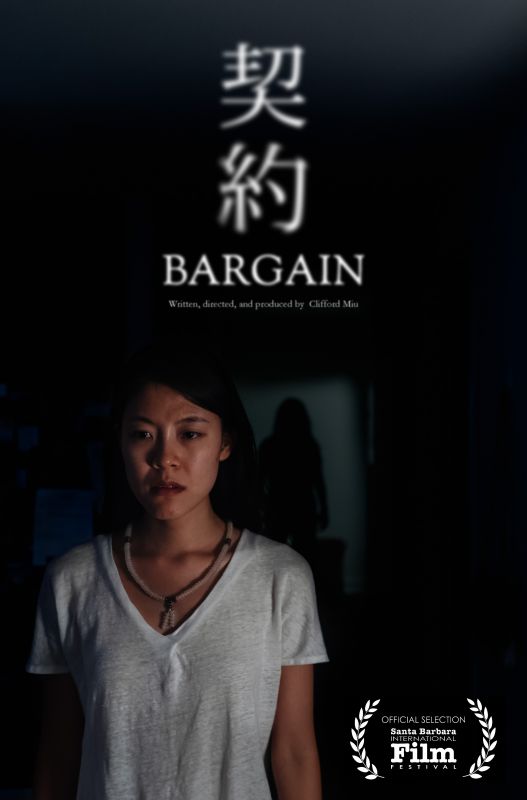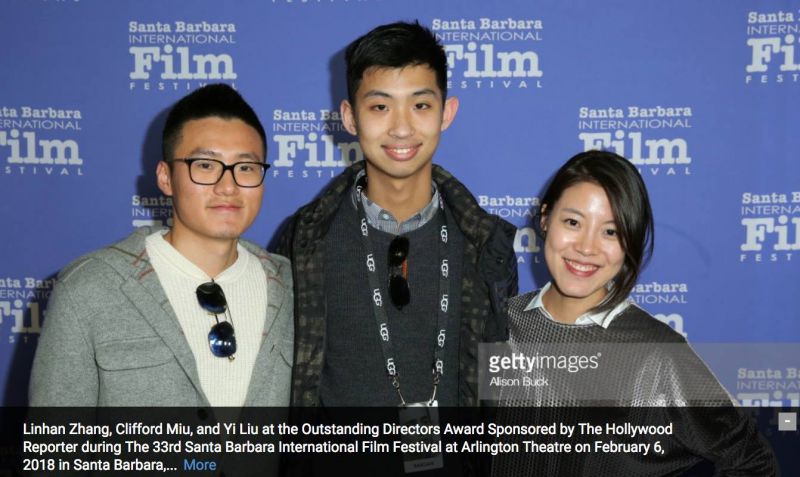|
|
||
|
Pro Tools
FILMFESTIVALS | 24/7 world wide coverageWelcome ! Enjoy the best of both worlds: Film & Festival News, exploring the best of the film festivals community. Launched in 1995, relentlessly connecting films to festivals, documenting and promoting festivals worldwide. Working on an upgrade soon. For collaboration, editorial contributions, or publicity, please send us an email here. User login |
'Sex After Kids' (2013). Interview with Jeremy Lalonde.
Is sex possible after kids? That is the question. Writer/Director/Producer Jeremy Lalonde tackles this very enigma in his latest feature film ‘Sex After Kids’ (2013). The film held its world premier in Santa Barbara last month at the 28th SBIFF. I recently interviewed Jeremy about this titillating romantic sex comedy. Here is what he had to say:
ME: What first inspired you to make this film? Was it based on personal events or people you know? JEREMY: I knew I wanted to make an ensemble film for my second feature and I decided I'd make a list of the most interesting topics I could think of, and 'Sex After Kids' was the first thing I wrote down, and I never wrote down anything else. I knew right away how fertile that subject was. As a father of two, I absolutely borrowed from personal events as well as stealing a healthy amount of stories from people I know, including some of the cast members that I'm friends with and have children themselves. In truth, too many stories fit into one film. I'd like to think we covered a nice variety of subjects and stories. ME: How hard was it to cast such an ensemble piece? JEREMY: Surprisingly easy! Probably because I cast the majority of the film before I wrote the script (which is not the usual way). I knew we'd be working with a low budget and so I decided to veto the audition process you normally go through when making a film and we just sent out offers to people I wanted to be in the film with a very brief outline of the various story lines along with a letter explaining how we'd be making the film - including some tongue in cheek stuff about how they had to get their own asses to set, provide their own wardrobe, etc… having a low budget I wanted people to make sure they knew what they were signing up for. Some of the cast I held off on asking until I had a draft in place, and then they got that with the letter. My general rule on this film was that I have to ask, otherwise I'll never know. I carried that rule through to the casting and the actors I asked to join us along on this project, and I was rewarded with what I honestly think is one of the best ensembles casts I've ever seen in a Canadian film. ME: Was it an overall easy production or did it take many years to get off the ground? JEREMY: In terms of the time line, it was very quick. A year and two days after I'd decided to pursue this project we were having our world premiere at SBIFF. That doesn't normally happen. Production is always complicated, and even more so when you're making a film on a low-budget. A lot of our cast and crew, including myself, are on television series during the week, so the only way we could make this film was to break it up and shoot it in chunks. Fifteen days over the course of three and a half months. We had an amazing crew, this tight little army, and so that sort of thing makes all the difference. I was blessed with a cast and crew that were really willing to come along this journey and it's their hard work and faith and trust in the material that made this film happen. Looking back, I don't know what I'd changed given how happy I am with how the film turned out. But looking forward, I want more shooting days on the next one. Shooting in small chunks was our savior on this project, I think. If we'd shot this project, the way we shot it, with the days back to back like you normally do, I think we would have broken down from exhaustion half-way through and the film would have, ultimately, suffered from it. I took a cue from Ed Burns when deciding to shoot the film in small chunks. He talks about how film is the only art form where people expect you to create something in such a small amount of time and on such a strict schedule - and he's right. He said, no one stood over Picasso's shoulder asking him if he was finished with the blue, or over Hemingway's telling him that he needed to finish the chapter in an hour otherwise everyone's going into overtime. But then again great stuff can come out of your limitations. ME: Obviously all relationships in the world suffer once kids are in the picture. What do you think is the key to balancing both the sexual and the family side of relationships? JEREMY: In truth, I'm not sure I can answer that. I think it's a miracle we had the time and energy to even create our second child. At this point a third child would, quite literally, be a miracle. Sex takes a hit when you have kids, especially if you've got more than one. But if that's the only reason you're with someone then you probably shouldn't have kids in the first place since having kids require you to get over your own stuff and focus on something bigger than yourself. You have to find other ways to show intimacy with your partner. You have to find a way to stay connected outside of the parenting role - and that's unique for each couple. I think there's something really powerful that can come out of raising children with someone else - it's an intimacy that isn't found any other way. And when you're tired and cranky and feeling shitty and not at all sexual, you just have to sigh and say: "This too shall pass." ME: Do you think that the family unit has suffered a lot in recent times, with all the choices we have out there and conveniences? And do you think that has made people try less hard to keep their relationship? JEREMY: I think, sadly, people today give up a lot easier. I also think people jump into having kids without really thinking through what that means. The sacrifices you have to make, both personally and to your relationship. It's hard work and it's a true test of character. At the same time I think that if you're not in a healthy relationship you should get out. We're lucky to live in a time where that's an option. There is a character in my first film that says, "Divorce is an amazing thing - it means choice. It means that people can realize that they made a bad choice and get out of a bad situation." I think getting out of a relationship for the right reasons is better than staying in one for the wrong reasons. It means that you actually respect relationships. Again, it's way to specific a thing to speak about in general terms, but those are my general thoughts. ME: This is a real crowd pleaser film! How have audiences received the film so far? JEREMY: Really well, which is very rewarding. We had our World Premiere at SBIFF and sold out the first three screenings. They added a fourth screening which also sold out and then we were added to their Best of the Fest and were the runner-up for the Audience Award. And because we raised the budget for this film through crowd funding we've been able to amass this army of support by people in over twenty-six countries. ME: How difficult do you find it to make indie films in the climate of distribution today? JEREMY: All things considered I think it's often easier to make a film than to get people to see it. Hollywood relies on A-list names to fill seats, and smaller films tend to rely on A-list talent instead, which sadly doesn't always translate to the same results. There's a learning curve to this, and I know a lot more than I did when I took my first film out into the world. You can't just sit back and hope people discover your film - you have to be very forthright and push yourself and your work without seeming pushy. There's a lot of companies out there and will take advantage of you if you let them. It's very exciting to have a company tell you that they love your film and want to help get it out in the world, but you have to be able to step back and think hard about whether or not it's the right decision for you and for the film. We live in a time where a film that's two years old is seen as an old film, so if you set yourself up with the wrong distributor at the beginning you could be killing the exposure of your film forever. Ultimately you're responsible for the life of your film, and the best thing you can do is get word about it out as early as possible through whatever means necessary. ME: How did you get into filmmaking? Was it a hard road or did it come easy and you always knew? JEREMY: I've always been a storyteller, even when I was a kid. That's what I really enjoyed doing - entertaining people. In high school I did drama and made little movies with my friends. I've always written a lot, won some young playwright competitions - so that's always been the path. The medium changes, and I imagine will continue to change. Different stories fit in different places, I believe. Filmmaking is hard mostly because it's an art form that requires financing for you to properly practice and refine your skills. As a writer all that craft costs me is my own personal time. Filmmaking is collaborative, so it requires the time and resources of others - I love collaborating and that's a big part of how I work. If I'm lucky I'll continue to find an audience for my work and that will let me continue with this. ME: How was it to have your film screen at the SBIFF and where will it go next? JEREMY: SBIFF was great. Santa Barbara is a beautiful town with a rich cinema history. It was my first trip to California so it made it all the more special to have a reason to be there. The audiences were really supportive and lovely. We were honored to have four sold out screenings. As of right now we have no other festivals lined up, but we've been asked to submit to some great ones and are waiting to hear. Also we have a Canadian distributor that will release the film theatrically and otherwise in 2014 and we're working on our sales in the US and international territories, so hopefully wherever you are you'll be able to see this film in the next year or so outside of festivals. ME: What is your next project? Do you know yet or can you talk about it? JEREMY: I WISH I could officially announce it, but I don't want to jinx it. I've got a number of things in the works, but the film I hope to do next is another comedy ensemble. That's all I'll say for now. There's been some interest in bringing ‘Sex After Kids’ to the small screen, but that's all very preliminary right now. I'm currently editing a feature film called ‘Patch Town’ that was directed by a good friend of mine, Craig Goodwill, and also stars Zoie Palmer, who was in ‘Sex After Kids’.
Interview by Vanessa McMahon
photo stills from film:
19.03.2013 | Santa Barbara's blog Cat. : 'Sex After Kids' (2013). Interview with Jeremy Lalonde. Interviews
|
LinksThe Bulletin Board > The Bulletin Board Blog Following News Interview with EFM (Berlin) Director
Interview with IFTA Chairman (AFM)
Interview with Cannes Marche du Film Director
Filmfestivals.com dailies live coverage from > Live from India
Useful links for the indies: > Big files transfer
+ SUBSCRIBE to the weekly Newsletter Deals+ Special offers and discounts from filmfestivals.com Selected fun offers
> Bonus Casino
User imagesAbout Santa Barbara The Santa Barbara International Film Festival has star wattage and a wealth of premieres in a Mediterrean-style city by the sea.
Blogging here with dailies: View my profile Send me a message The EditorUser contributions |



















